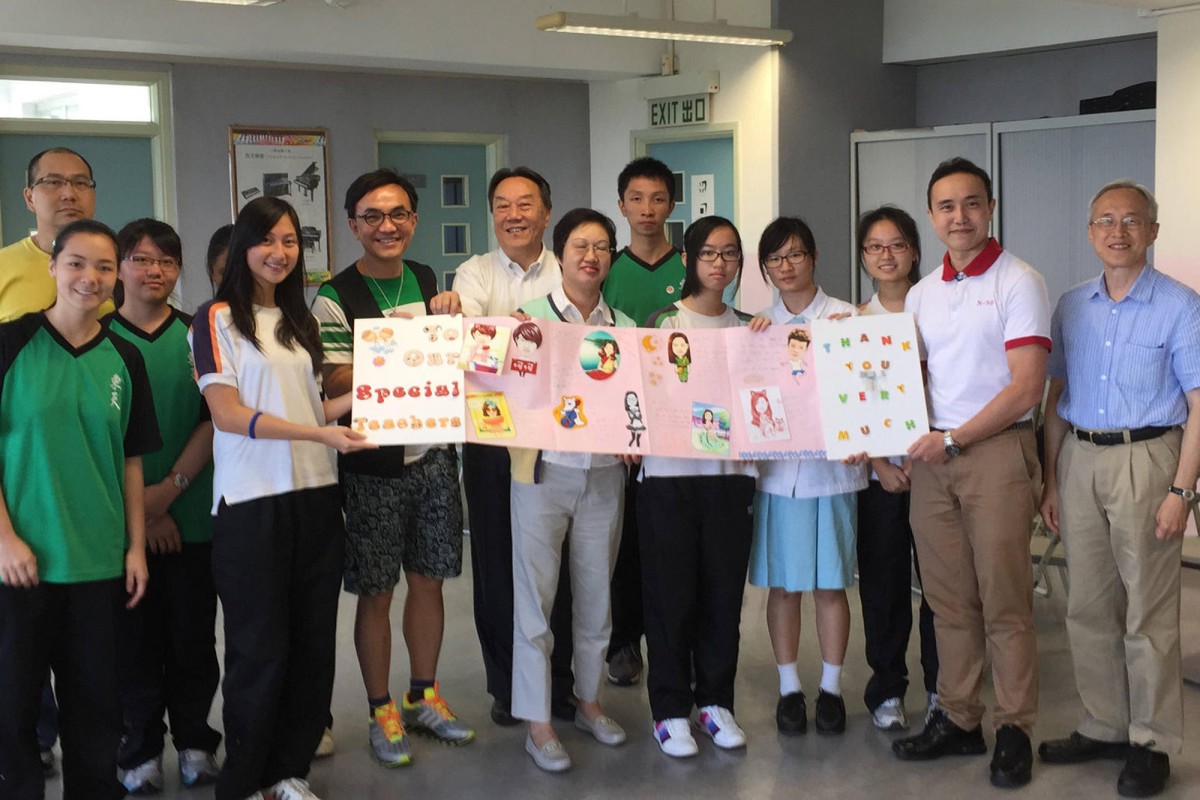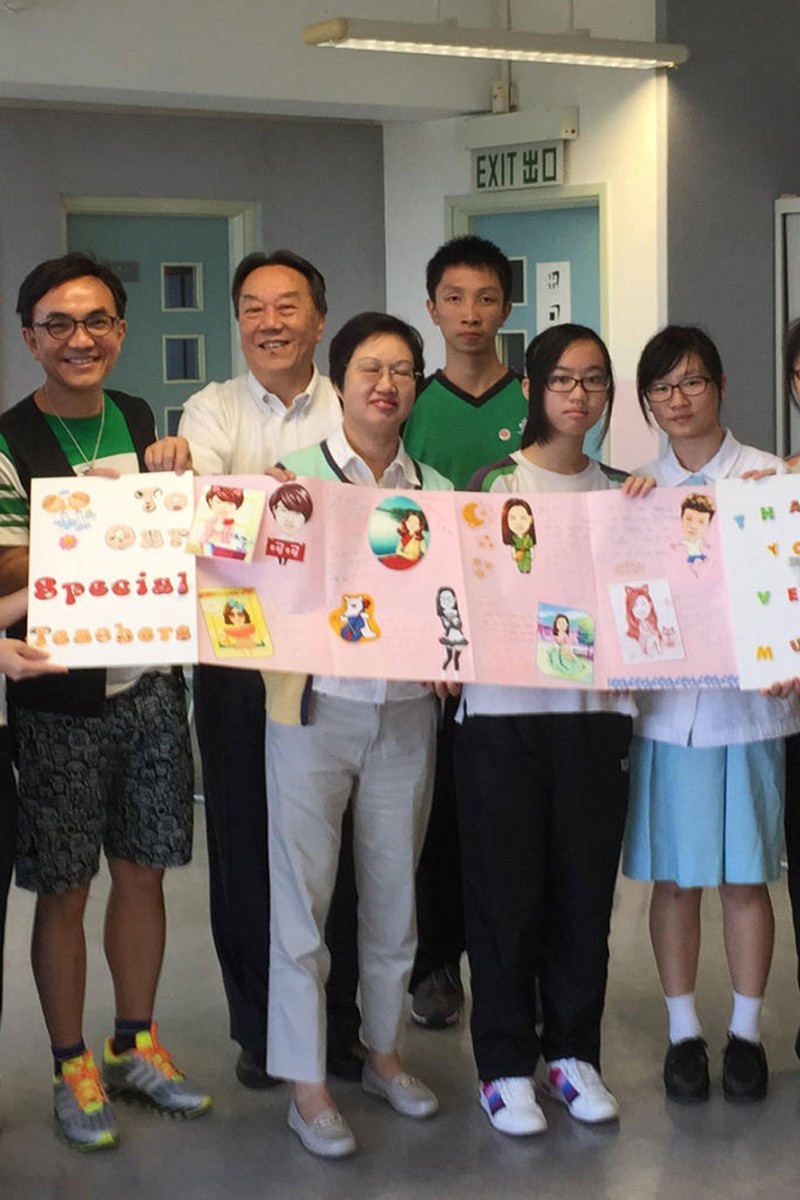 Some of the students showed their gratitude at a reunion event. Even though the course has ended, mentors and students made such a connection that many of them still keep in touch.
Some of the students showed their gratitude at a reunion event. Even though the course has ended, mentors and students made such a connection that many of them still keep in touch.For some students, English is just a subject in school. They study hard to get good grades in the DSE, but they don't use the language in their daily lives.
"They learn it a lot, but only use it a little," said Dr Alan Lai Wai-lun, assistant professor at United International College. So he started an activity-based, intergenerational ESL (IG-ESL) programme to help them.
Last summer, Lai recruited around 10 university-educated retired adults to mentor about 20 Form Three and Form Four students from Tung Chung Catholic School.
Meeting for two hours every week for three months, created a tight bond between students and mentors. They have continued to stay in touch via WhatsApp, and talk about almost everything, even though the course has ended.
Ho Siu-yung, now in Form Five, has a mentor who likes to discuss Occupy Central and other social issues with her, even though the two often disagree.
Wong Sin-ting, also in Form Five, signed up for the programme to improve her listening skills, but gained much more in return. "My writing also improved a lot," she said. Her mentor would go through her articles word by word and help her revise. "She's really nice! Now I have a better idea of how to improve my writing," said Sin-ting.
By constantly talking to their mentors in English, the students now feel more confident using the language to communicate, said Siu-yung.
However, when they first met, the situation was quite different.
Peter Ko, a retired banker, said the students "just sat there and politely smiled" on the first day. They were too intimidated to make a move and break the ice. "It just wasn't their habit to listen to or to speak English," said Ko.
For the first session, the mentors wrote down their background information anonymously, including education and interests. Then, students had to decide who they wanted as their mentor and talk to each "stranger" to work out who the person they had chosen was. Another activity involved role playing: the groups had to "go back in time" to the mentor's childhood in the 1960s, where students played the role of their respective mentors and mentors played the role of their parents.
"It was quite fun," said Sin-ting, recalling herself playing Chinese skipping with the mentors.
This wasn't Lai's first attempt at IG-ESL. In 2013, he initiated the programme and launched a pilot scheme with students from Hong Kong Polytechnic University. Through the university's Institute of Active Ageing, he recruited older adults who were proficient in English and willing to help. Some of those mentors stayed on and encouraged their family and friends to join.
Alice Leung, a retired social worker and Sin-ting's mentor, enjoyed making friends with the students. She used her social skills to help the students, and was happy to see the students opening their hearts to her.
"Girls even WhatsApp me about their boy problems," Leung said. "I also got to know this generation better."
Her students taught her to play Candy Crush and now she's become very good at it.
"They are really willing to learn," Leung said of the students. She is proud that they are now confident about speaking English.
"It's inevitable they still make grammatical mistakes, but what's important is they have the confidence now," added Ko. "We were not teaching them, we just helped them find their own ways to improve."
Form Four student Kimmy Chui said the older adults were more like friends than mentors. "They are just so nice, it's easy to make friends with them," she said. Normally in English classes, students are taught grammar and writing, but this programme provides more opportunities to actually communicate, said Kimmy.
Jenny Chan, now in Form Five and mentored by Ko, agreed. She once told Ko that she used more English in three weeks of the programme than she did in two years of English lessons.
After the three-month programme, test results showed that students' writing improved by 40 per cent, they did 20 per cent better in oral tests.
For Lai, what makes the IG-ESL programme stand out is friendship. "It's a win-win formula," he said. It gave mentors a chance to pass their life experience on to the next generation, he added.
Carrying on with a winning formula, Lai said he is ready to expand the programme to four secondary schools this summer and eight schools by 2016.
